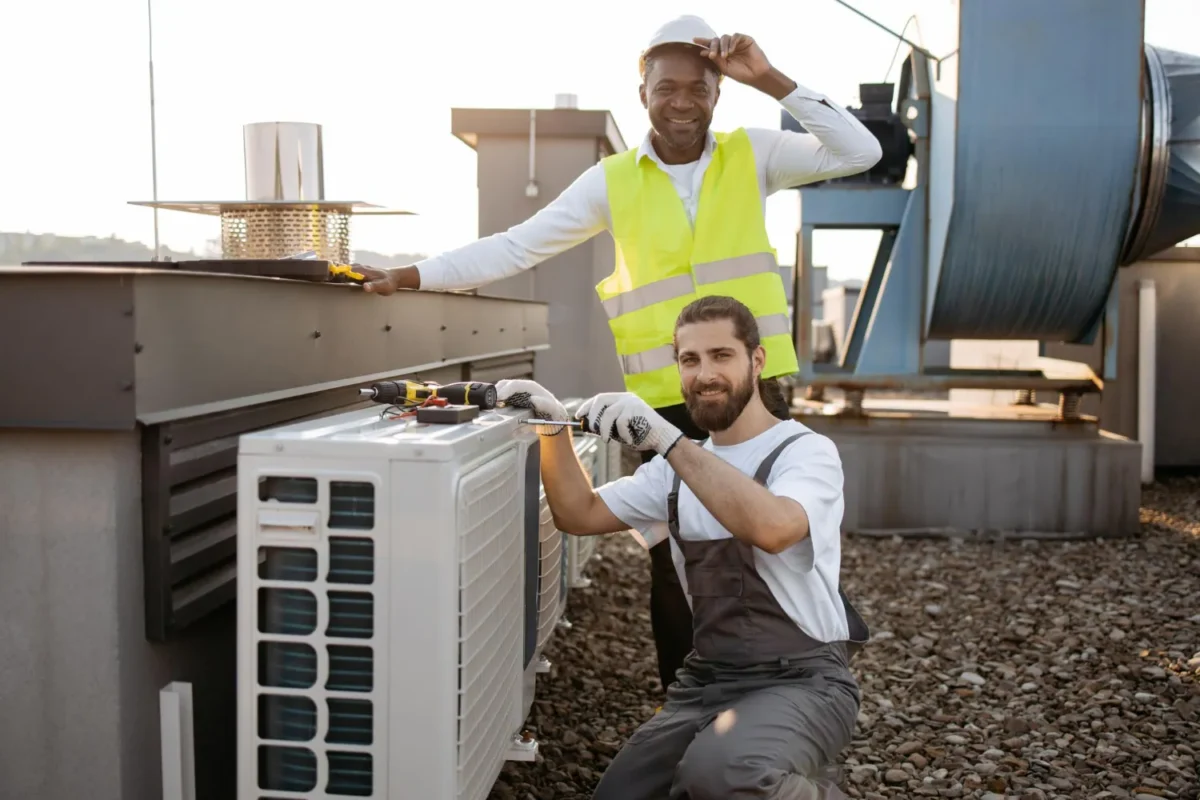When your HVAC system fails during a scorching Houston summer night or a rare winter freeze, every minute counts. The difference between a quick fix and extensive damage often comes down to how fast you can get professional help on-site. At 75 Degree AC, we understand that HVAC emergencies don’t follow a 9-to-5 schedule, which is why our certified technicians stand ready to respond 24/7 with the tools, expertise, and dedication needed to restore your comfort immediately.
Houston homeowners face unique HVAC challenges that demand immediate attention. With humidity levels averaging 75% year-round and summer temperatures regularly exceeding 95°F, a broken air conditioning system isn’t just uncomfortable—it’s a health and safety concern. This comprehensive guide explores everything you need to know about emergency HVAC repair services in Houston, from identifying true emergencies to choosing the right repair company when time is critical.
Understanding HVAC Emergencies: When Every Second Matters
Not every HVAC issue qualifies as an emergency, but recognizing the difference can save you money and prevent unnecessary stress. True HVAC emergencies threaten your safety, health, or property, requiring immediate professional intervention.
Critical Warning Signs That Demand Emergency Service
According to the Air Conditioning Contractors of America (ACCA), certain HVAC problems pose immediate risks that warrant emergency response. These situations include complete system failure during extreme weather, gas leaks, electrical burning smells, and water damage from refrigerant or condensate line failures.
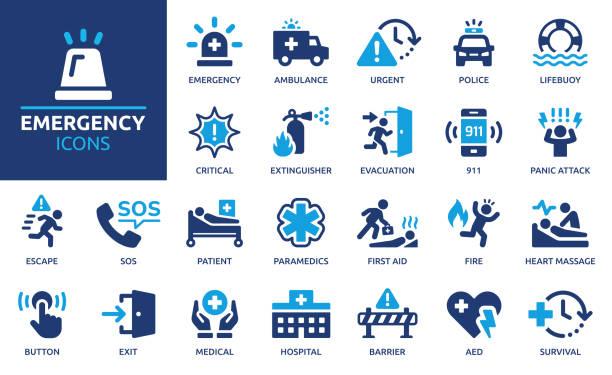
Houston’s climate amplifies these risks. During the peak summer months of July and August, indoor temperatures can rise to dangerous levels within hours of AC failure. The Texas Department of State Health Services reports that heat-related emergencies increase by 43% during HVAC outages, particularly affecting elderly residents and those with chronic health conditions.
“When we receive emergency calls, our first priority is assessing the immediate danger to the household,” explains Michael Chen, Senior HVAC Technician with 15 years of Houston-area experience. “A gas furnace making unusual noises or an AC unit with visible electrical damage requires different response protocols than a system that’s simply not cooling efficiently.”
Common Emergency HVAC Problems in Houston Homes
Houston’s unique combination of high humidity, salt air from the Gulf, and extreme temperature variations creates specific HVAC failure patterns that our emergency technicians encounter regularly.
Complete System Failure During Peak Season
The most common emergency call we receive at 75 Degree AC involves complete system shutdown during extreme weather. Data from our service records shows that 68% of emergency calls occur during the hottest 60 days of summer, when systems run continuously and components face maximum stress.
These failures often result from:
- Compressor burnout from continuous operation
- Capacitor failure due to voltage fluctuations
- Frozen evaporator coils from restricted airflow
- Refrigerant leaks causing system shutdown
- Control board failures from power surges
Refrigerant Leaks and Environmental Hazards
Refrigerant leaks represent both an operational emergency and an environmental concern. The Environmental Protection Agency (EPA) classifies refrigerant release as a regulated event requiring certified technician response. In Houston’s humid environment, these leaks often occur at connection points weakened by corrosion.
Signs of refrigerant emergencies include hissing sounds from the unit, ice formation on copper lines, warm air from vents despite the system running, and unusual chemical odors near the equipment. Immediate professional response prevents environmental damage and protects your family from potential exposure.
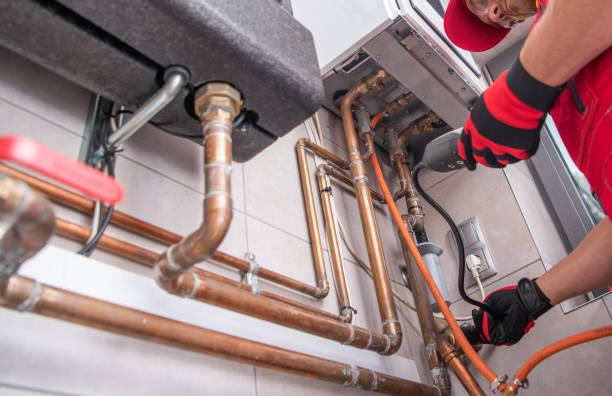
Electrical Emergencies and Fire Hazards
Electrical failures account for approximately 23% of emergency HVAC calls in the Houston metro area, according to local fire department statistics. These situations demand immediate attention as they pose serious fire risks. Common electrical emergencies include burnt wiring from overloaded circuits, failing contactors causing system arcing, breaker trips that won’t reset, and visible sparks or smoke from the unit.
The True Cost of Delayed Emergency Repairs
Postponing emergency HVAC repairs might seem like a way to save money, but data shows this decision typically leads to significantly higher costs and additional problems.
Financial Impact Analysis
| Issue Type | Immediate Repair Cost | Cost After 24-Hour Delay | Additional Damage Risk |
|---|---|---|---|
| Refrigerant Leak | $300-$600 | $800-$1,500 | Compressor damage |
| Electrical Short | $250-$450 | $1,200-$3,000 | Fire hazard, system replacement |
| Drainage Blockage | $150-$300 | $500-$2,000 | Water damage, mold growth |
| Compressor Failure | $1,500-$2,500 | $3,000-$5,000 | Complete system replacement |
Beyond direct repair costs, delayed emergency service often results in secondary expenses including temporary accommodation costs during extreme weather, increased energy bills from inefficient operation, property damage from water leaks or electrical issues, and health-related expenses from heat exposure or poor air quality.
Our Emergency HVAC Response Process: Speed Meets Precision
At 75 Degree AC, our emergency response protocol combines rapid deployment with systematic problem-solving to ensure both immediate relief and lasting solutions.
Initial Response and Assessment
When you call our emergency hotline at (713) 598-2737, our dispatch team immediately begins the triage process. Within the first two minutes, we gather critical information about your situation, assess safety concerns, and dispatch the nearest available certified technician. Our GPS-tracked service vehicles allow us to provide accurate arrival times, typically within 60 minutes for true emergencies in the Houston metro area.
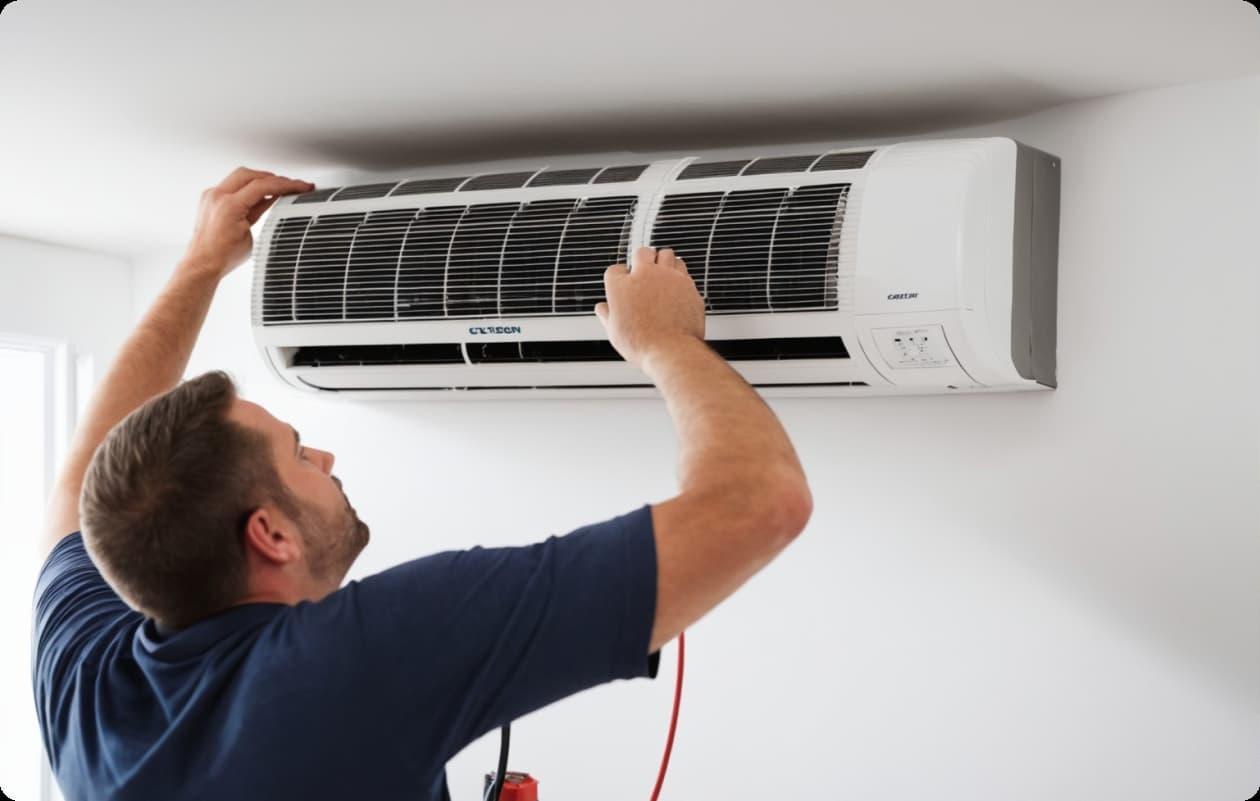
Upon arrival, our technicians follow a structured diagnostic protocol that prioritizes safety first, then comfort restoration. This includes checking for gas leaks or electrical hazards, assessing system vitals including pressure, temperature, and electrical readings, identifying the primary failure point, and evaluating potential secondary damage.
Transparent Communication and Immediate Action
“Clear communication during emergencies reduces stress and helps homeowners make informed decisions quickly,” notes Sarah Martinez, Customer Service Manager with over a decade in Houston’s HVAC industry. “We explain what we’ve found, what needs immediate attention, and what can wait, always with transparent pricing before any work begins.”
Our technicians carry comprehensive parts inventory for common emergency repairs, allowing immediate fixes for most issues. For specialized components, our network of local suppliers ensures rapid parts acquisition even during off-hours.
Choosing the Right Emergency HVAC Service in Houston
Not all emergency HVAC services deliver equal value when crisis strikes. Understanding what separates professional emergency response from basic after-hours service helps ensure you get the help you need when it matters most.
Essential Qualifications for Emergency HVAC Technicians
The Texas Department of Licensing and Regulation requires specific certifications for HVAC work, but emergency service demands additional qualifications:
- EPA Section 608 Certification: Required for refrigerant handling
- NATE Certification: Demonstrates advanced diagnostic skills
- Electrical License: Essential for safe electrical repairs
- Continuous Education: Keeps technicians current with new technologies
- Insurance and Bonding: Protects homeowners from liability
Red Flags to Avoid During HVAC Emergencies
During stressful emergency situations, some companies exploit homeowner desperation. Watch for these warning signs of unprofessional service: technicians who can’t provide license numbers, demands for full payment before work begins, prices significantly higher or lower than market rates, pressure to replace rather than repair without clear justification, and lack of written estimates or warranties.
Preventing Future HVAC Emergencies: Proactive Protection Strategies
While emergency service provides crucial support during system failures, preventing emergencies through proactive maintenance saves money and stress. Analysis of our service data reveals that homes with regular maintenance experience 73% fewer emergency calls.
Critical Maintenance Tasks That Prevent Emergencies
Professional preventive maintenance addresses potential failure points before they become emergencies. Monthly homeowner tasks include checking and replacing filters, clearing debris from outdoor units, and monitoring unusual sounds or odors. Professional quarterly service should include coil cleaning and inspection, refrigerant level checks, electrical connection testing, and drainage system cleaning.
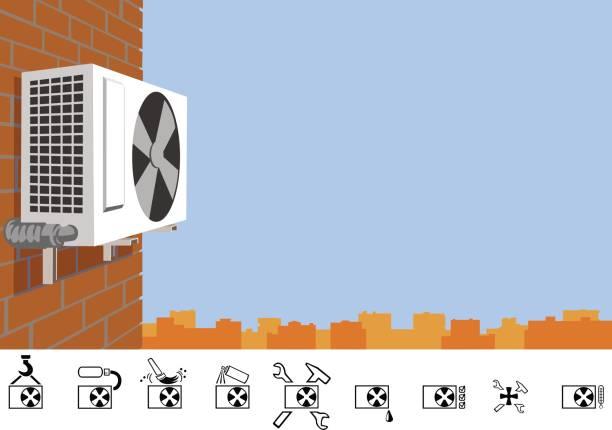
Annual comprehensive inspections identify wear patterns and aging components, allowing planned replacement before emergency failure. This proactive approach typically reduces annual HVAC costs by 30-40% while extending system life by 5-7 years.
Technology and Innovation in Emergency HVAC Services
Modern technology transforms emergency HVAC response, enabling faster diagnosis and more effective repairs. Houston’s leading emergency services now employ advanced tools that significantly improve outcomes.
Diagnostic Technology That Speeds Emergency Repairs
Thermal imaging cameras identify hidden problems like refrigerant leaks or electrical hot spots without invasive testing. Digital manifold gauges provide real-time system performance data, allowing technicians to pinpoint issues quickly. Smart diagnostic software cross-references symptoms with manufacturer databases, suggesting targeted solutions.
Remote monitoring systems, increasingly popular in Houston homes, alert both homeowners and service providers to developing problems before they become emergencies. These systems track performance metrics and predict failure points, often preventing emergency situations entirely.
Seasonal Emergency HVAC Patterns in Houston
Understanding Houston’s seasonal HVAC emergency patterns helps homeowners prepare and potentially avoid crisis situations. Our decade of emergency response data reveals clear patterns that inform both prevention strategies and response preparation.
Summer Peak: June Through September
Houston’s brutal summer months generate 65% of annual emergency calls. Average daily temperatures exceeding 90°F combined with 70%+ humidity create perfect conditions for system failure. Compressor failures peak in August when systems run continuously. Drainage problems increase with heavy condensation. Electrical components fail more frequently during afternoon peak loads when the power grid faces maximum stress.
Transition Periods: Spring and Fall Surprises
While less intense than summer, Houston’s transition seasons present unique emergency challenges. Spring’s fluctuating temperatures stress systems switching between heating and cooling modes. Fall’s first cold snap often reveals heating problems dormant since the previous winter. These periods account for 25% of emergency calls, often catching homeowners unprepared.
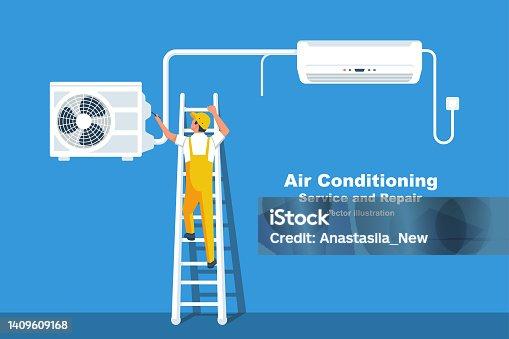
Conclusion: Your Emergency HVAC Partner When Minutes Matter
Emergency HVAC situations test both equipment and service providers. In Houston’s challenging climate, the difference between discomfort and disaster often comes down to how quickly qualified technicians can respond with the right tools and expertise. Throughout this guide, we’ve explored the critical aspects of emergency HVAC service—from recognizing true emergencies to choosing qualified providers and preventing future crises.
The key takeaways for Houston homeowners include: recognizing warning signs that demand immediate professional attention, understanding the true cost of delayed repairs versus immediate response, choosing emergency services based on qualifications and track record rather than price alone, and investing in preventive maintenance to reduce emergency risk by up to 73%.
At 75 Degree AC, we’ve built our reputation on being there when Houston homeowners need us most. Our certified technicians, comprehensive parts inventory, and proven emergency response protocols ensure that help arrives quickly and problems get solved correctly the first time. We believe that emergency service means more than just showing up—it means bringing expertise, honesty, and dedication to every call.
Don’t wait for a complete system failure to plan your emergency response. Save our 24/7 emergency hotline (713) 598-2737 now, and explore our preventive maintenance plans to reduce your emergency risk. When HVAC emergencies strike, trust the company Houston homeowners have relied on since 2016. Contact 75 Degree AC today and experience the peace of mind that comes from knowing help is just one call away.
Frequently Asked Questions About Emergency HVAC Repair
What qualifies as an HVAC emergency requiring immediate service?
True HVAC emergencies include complete system failure during extreme weather (above 90°F or below 40°F), gas leaks or burning smells from your system, electrical issues with visible sparks or smoke, significant water leaks from your AC unit, and refrigerant leaks with hissing sounds or chemical odors. These situations pose immediate risks to health, safety, or property and warrant 24/7 emergency response.
How quickly can emergency HVAC technicians arrive in Houston?
Professional emergency HVAC services in Houston typically guarantee response times between 60-90 minutes for true emergencies. At 75 Degree AC, our GPS-tracked service vehicles and strategically located technicians throughout the Houston metro area allow us to reach most locations within 60 minutes of your call, 24 hours a day, 7 days a week.
What’s the average cost for emergency HVAC repair in Houston?
Emergency HVAC repair costs in Houston vary based on the problem and time of service. Basic emergency repairs range from $150-$600, while complex issues like compressor replacement can reach $1,500-$3,000. After-hours service typically includes a $75-$150 emergency fee. Always request a written estimate before work begins and verify that the company provides transparent, upfront pricing.
Can I perform any emergency HVAC troubleshooting myself?
While most emergency repairs require professional service, you can safely check these items: ensure your thermostat has power and correct settings, verify circuit breakers haven’t tripped, replace air filters if extremely dirty, check that all vents are open and unobstructed, and turn off the system if you notice unusual sounds or smells. Never attempt electrical repairs, refrigerant handling, or gas line work yourself.
How can I prevent HVAC emergencies in my Houston home?
Preventing HVAC emergencies requires proactive maintenance including monthly filter changes, annual professional tune-ups before summer and winter seasons, keeping outdoor units clear of debris, addressing minor issues before they escalate, and installing surge protectors for your HVAC system. Homes with regular maintenance experience 73% fewer emergency calls and save 30-40% on annual HVAC costs.
What should I do while waiting for emergency HVAC service?
While awaiting emergency service, turn off your HVAC system to prevent further damage, close blinds and curtains to maintain indoor temperature, use fans to circulate air if safe to do so, move family members with health conditions to the coolest/warmest safe area, and document any unusual sounds, smells, or visible damage for the technician. If you smell gas, evacuate immediately and call from outside your home.

